Hans Zimmer has composed incredible music for some incredible movies: The Lion King, Pirates of the Caribbean, Driving Miss Daisy, Gladiator, The Dark Knight Trilogy, Interstellar, Inception,… The list goes on and on, up to this point including over 150 movies. His most recent score is for the movie Dunkirk, currently out in theaters.
Zimmer’s early musical career involved working with the rock ‘n’ roll bands The Buggles and The Damned, but under the mentorship of Stanley Meyers he transitioned to writing music for movies. As a measure of his success, he has thus far been nominated for nine Academy Awards, and won the Oscar for Best Original Score in 1995 for The Lion King. He has also won two Golden Globe Awards (for The Lion King and Gladiator), and four Grammy Awards (two for The Lion King, and one each for Crimson Tide and The Dark Knight). Over the years, he has worked with notable directors including Christopher Nolan, Ron Howard, Ridley Scott, and Barry Levinson.
This interview was for a preview article for noozhawk.com for Zimmer’s concert at the Santa Barbara Bowl on 8/13/17. It was done by phone on 7/21/17. This was a group interview, of which the highlights were included in the preview article for noozhawk.com (also copied below). Zimmer’s full answers to questions asked by yours truly are given here. (Ed Robinson photo)
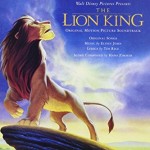
Jeff Moehlis: The Lion King was a big milestone for you. How did you approach that soundtrack differently from the previous ones you had done up to that point?
Hans Zimmer: Well, I didn’t want to do The Lion King. Let’s start there. I kept saying to them, “All you want is a Broadway musical with fairytale princesses.” Because that’s what I thought Disney did. And they kept saying, “No, no, no, no. That’s not what we want at all.”
I mean, I’m just telling you the truth – I did it for all the wrong reasons. My daughter at the time was 6 years old, and I had never been able to take her to a premiere, because a 6 year old at a Ridley Scott movie premiere isn’t really quite the right thing, if you see what I mean. You’ll scar your child forever. So it seemed like a great opportunity for Dad to just show off. So I said, “OK, I’ll do it.”
I didn’t actually realize until I started working on it how incredibly profound it was. The story is really about a son losing his father, or at least that is the center for me. And my father died when I was at a really young age, and I never dealt with it. You know, kids have a great way of blanking these things out. So suddenly there I was doing what I thought was going to be this trivial cartoon about fuzzy animals, and actually noticing that I had to go and write something pretty serious.
And then, of course, the one thing that I had fought against from the start was the Broadway musical thing. It actually turned out to be a great pleasure, and it was a wonderful thing. So the learning curve for me was really, “Don’t say no. Don’t be an idiot and say no.” Just embrace things. You never know where they’ll lead you, because it’ll be interesting. But I was young and foolish.
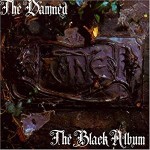
JM: I want to ask you about your rock ‘n’ roll past. I know you appeared briefly in the video for “Video Killed the Radio Star”, but another thing that jumped out at me was that you worked with The Damned on The Black Album. How did you get that gig and what was that experience like? And how did that perhaps influence your decision not to continue in that direction?
HZ: Weirdly, The Damned was one of the best experiences I ever had. I knew the head of their record company, which was a small record company in London called Chiswick Records. He phoned me up one morning and he said, “What are you doing?” I’m going, “Nothing really.” He goes, “OK, I’m coming by. Will you go and produce The Damned?”
I thought we were just going for a meeting somewhere down the road. Little did I know we were driving 180 miles into Wales where they were at a recording studio. By the time I got there they had basically fired their third producer. The record company guy was rightfully fairly nervous that this wasn’t going to happen. I think part of his plan was he was literally just going to drop me off and drive away, so The Damned and I were stuck.
Within moments, I don’t know, we just found common ground. It literally turned into one of the best experiences I ever had. We just had fun. You know, I wasn’t trying to dictate. I was just trying to bring the best out of them. To this day, I just look back on that time as really good, and I have no idea why those three other producers had completely and utterly failed. I don’t know. Maybe that’s partly why I became good at doing film scores, because really all they wanted to do was experiment, and do something different. I mean, The Black Album has, what is it, a 20 minute concept track on it [“Curtain Call”]. On a punk album, which was unheard of. We had enormous fun making that. I actually ended up being a keyboard player on it. We just all jumped in, and it was just a really good experience.
JM: You were also involved with The Buggles. How did that experience compare with working with The Damned?
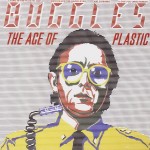
HZ: Actually, I learned from Trevor Horn a lot about how to produce, because The Damned was after The Buggles. On this tour, while we were in Europe, Trevor and I for the first time ever did “Video Killed the Radio Star” live. And, first of all, it was a great experience because we pulled it off, but the other thing is we had spent three months recording that song. Actually the reason it took three months was because we had to do it twice, because we wore the tape out the first time around. And here we were, and I said to Trevor, “Hey, I’m playing this arena in Frankfurt. Do you want to come and play ‘Video Killed the Radio Star’?” and he instantly said yes. It was sort of amazing that we could just pull it off with great musicianship, and the musicians that I’m surrounded by. Maybe in retrospect it didn’t really need to take three months. Maybe we’ll do it again one of these days. I mean, Trevor and I have done a couple of film scores together, as well, except these always were for movies that nobody went to see.
JM: I’m in Santa Barbara, and when Yes played in Santa Barbara [with Buggles/Yes keyboardist Geoff Downes, a concert where they played the Drama album], Trevor came and perform with them. Just throwing that out there.
HZ: What people don’t know, because he is modest, is that he is one of the best bass players bar none. I mean, he is such a solid musician, and an enormous amount of fun to have around. I’m just happy that after all these years, we can just basically go on a stage and still find joy in doing what we’re doing. I think, basically, and I keep noticing this with all of the musicians I have onstage, we all have one thing in common. Obviously the operative word in music is “play”, and my whole bunch, we are incredibly playful. We take not taking things seriously very seriously.
JM: What advice would you give to an aspiring musician, or an aspiring movie soundtrack composer?
HZ: Don’t take “no” for an answer. Know how to tell a story. I think that’s the only advice I can give to anybody, really, who wants to write music. Sometimes I still walk into a room full of people and they don’t know who I am, and somebody says, “Oh, what do you do?” And I say, “I’m a composer.” And they say, “No, no, no. What do you do for a living?” So that never goes away. So you just have to ignore that, you know, ignore people who don’t think that you can do it.
And here’s the article from noozhawk.com, which also incorporates Zimmer’s answers to questions from others:
Catch Hans Zimmer’s Movie Music Magic
by Jeff Moehlis
Hans Zimmer has composed incredible music for some incredible movies: The Lion King, Pirates of the Caribbean, Driving Miss Daisy, Gladiator, The Dark Knight Trilogy, Interstellar, Inception,… The list goes on and on.
But you don’t have to limit yourself to just hearing this music at a movie theater, on a soundtrack CD, or in your high-tech home entertainment room. Zimmer, plus a band, a full orchestra, and a full choir will be bringing it to the Santa Barbara Bowl on August 13 – tickets are available here.
Zimmer took time out of his busy schedule for a group interview, which Noozhawk took part in.
When asked about the tour, he self-deprecated, “I’ve actually managed to, over the last 40 years, figure out enough music that can fill an evening without boring everybody.” He went on, “The only reason for me to go out onstage was to actually go and give people an experience that they couldn’t get anywhere else.” How so? “I know I can never get this group back together, because they’ve all got individual careers. If you come and see us – great. If you don’t come and see us, you will have missed out maybe on something that’ll never happen again.”
Not surprisingly, Zimmer feels strongly about the importance of orchestral music. “When I as a musician think about the orchestra, it’s not just that I wish my fellow musicians well and that they can earn a living, and that it’s interesting for children to learn how to play the violin, etc. I’m thinking of it more as a form of art that has been with us for a long time, and I think if we lost it it would create an enormous sort of vacuum in the human condition, in human culture. I think we need to be careful that we don’t lose these things, because if we lose it we lose some of our humanity.”
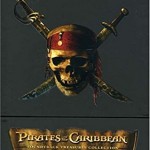
And he noted the importance of movies for the continued health of orchestral music. “I’ve said this before but I’ll say it again. Whatever dastardly things you can accuse Hollywood of, they’re all absolutely and completely true. But don’t forget it’s the last place on Earth that on a daily basis commissions orchestral music. And very often these are long-form pieces. I mean, some of the things we’re playing on this tour, like the ‘Pirates Suite’, it’s 14 minutes long. But that’s literally the way it popped out of my head when I was writing the movie. I didn’t have to make any changes. I wrote a 14 minute piece, and it seems to stand on its own two feet. Or Dark Knight, pulling from three movies makes for a pretty good long-form piece as well.”
One gathers that every movie score Zimmer works on has an interesting story behind it. When asked about The Lion King, for which he won an Academy Award, he revealed, “I didn’t actually realize until I started working on it how incredibly profound it was. The story is really about a son losing his father, or at least that is the center for me. And my father died when I was at a really young age, and I never dealt with it. You know, kids have a great way of blanking these things out. So suddenly there I was doing what I thought was going to be this trivial cartoon about fuzzy animals, and actually noticing that I had to go and write something pretty serious.”
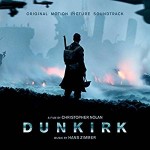
And regarding his most recent movie score for Dunkirk, which is currently out in theaters, he said, “Honestly, Dunkirk is the most radical thing I’ve ever done, without a shadow of a doubt.” In what way? “Because [director] Chris [Nolan’s] brief to me, which I think is a very good brief, was to make the music objective. It’s easy to write emotional music. It’s very difficult to keep objective music interesting. If you look at, for instance, Saving Private Ryan, there is very little music in it, while in Dunkirk the music never stops. Just the amount of having to invent to not become redundant, and having to invent to not become irrelevant, was quite a task.”
Zimmer’s show at the Santa Barbara Bowl promises to be quite an event, and a unique chance to focus on the music that has helped to make a number of movies as great as they are.

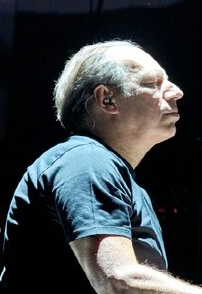
Discussion
No comments for “Interview: Hans Zimmer”